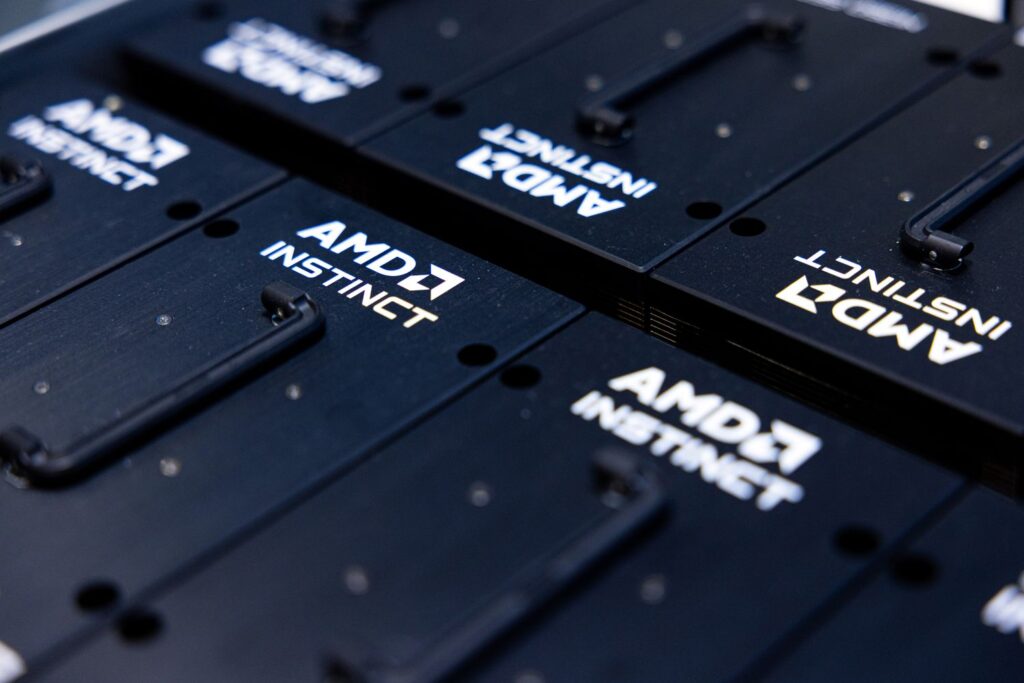:max_bytes(150000):strip_icc():format(jpeg)/GettyImages-2215621182-b75b6fb13ebb42559a07d8b1c59b9771.jpg)
Key Takeaways
- Advanced Micro Devices is set to report quarterly earnings after the market closes Tuesday.
- Analysts surveyed by Visible Alpha expect the chipmaker to report rising sales, but falling profits. AMD warned in May that it would take a hit from tighter chip export curbs.
- However, AMD reportedly suggested last month that headwinds from exports restrictions could soon ease, leading several analysts to raise their price targets for the stock.
Advanced Micro Devices (AMD) is scheduled to report second-quarter results after the closing bell Tuesday, after a strong run for the chipmaker’s stock amid hopes export curb headwinds could soon ease.
AMD is expected to report second-quarter revenue of $7.43 billion, up 27% year-over-year on strong data center sales, according to estimates compiled by Visible Alpha. However, its adjusted net income could fall to $796.6 million, or 48 cents per share, compared to $1.26 billion, or 69 cents per share, a year ago. In May, AMD warned it would take a hit in the quarter to the tune of $800 million related to tighter restrictions on sales of its chips to China.
Still, Wall Street analysts lean more bullish than bearish on the company’s stock, after AMD reportedly said last month that it plans to restart exports of its MI308 chips to China once it receives final approval from U.S. authorities.
Of the 10 analysts with current ratings tracked by Visible Alpha, six have “buy” or equivalent ratings for the stock, alongside five “hold” ratings, with price targets ranging from $111 to $210. The shares have gained more than 40% in 2025 so far, closing Friday near $172.
Last week, UBS raised its price target for AMD stock to $210 from $160, pointing to optimism about AMD’s ability to obtain the necessary approvals to start reselling it MI308 chips to China.
Bank of America also recently raised its price target, to $200 from $175. AMD could have a chance to reach a more than 30% share of the CPU market by 2026, up from less than 20% in 2023, BofA said, particularly if Intel’s (INTC) share of the market declines.


